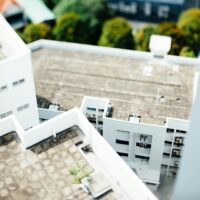I reside in Bangladesh, a country with numerous unique factors that might seem implausible to someone from a more developed nation. One distinct characteristic pertains to the financial struggles faced by many, where meager salaries represent merely the tip of the iceberg.
Even if you manage to accumulate some savings over an extended period, safeguarding your earnings is far from guaranteed. Among those who venture abroad for work from Bangladesh, it’s a common practice to invest their hard-earned income in local land purchases. However, a disheartening reality is that the lands they acquire are often vulnerable to seizure by others. Such unfortunate occurrences transpire with unsettling frequency. Imagine visiting the land you rightfully purchased, only to find someone else has erected a house or shop upon it. The pervasive corruption within government circles further exacerbates the situation, offering limited avenues for redress.
Pursuing legal action, though theoretically plausible, becomes an intimidating endeavor, potentially outweighing the initial loss of the land, particularly if you are working abroad. The widespread corruption and harassment prevalent in various government sectors empower individuals possessing even minimal political and government influence to wrest control of your property.
Another exceptional aspect, linked to the preceding point, involves people’s reluctance to engage with the police. Unless a murder or a major incident occurs, individuals avoid involving the police due to the perception that it’s akin to inviting a mafia. The belief is that police involvement results in the exploitation of both parties, with money being extorted from each. Unfortunately, Bangladesh’s justice department is more synonymous with injustice than equity. Corruption reaches such depths that even practices considered heinous in developed countries pale in comparison to the routine happenings in this nation.
While individuals might vocalize notions of justice and Islam, the societal reality paints a starkly contrasting picture. Ethical standards appear to be absent across all sectors in Bangladesh, and corruption infiltrates every echelon. Those who manage to maintain their integrity often struggle within this society. They are frequently targeted by the government or eliminated by elements linked to criminal organizations. Surviving in this environment without succumbing to corruption often requires being impoverished enough to remain invisible to greedy authoritarians.
The audacity of police officers openly stopping public transportation buses during daylight hours to extort bribes is shockingly apparent. During my student days, I personally bore witness to such incidents. When the police arrived for verification during my passport application process, they shamelessly demanded money in exchange for their services. I fervently hope that the individuals responsible, along with their corrupt family members, face appropriate consequences.
A cousin of mine experienced a firsthand ordeal where the police planted drugs in her brother’s pocket and falsely accused him. With a blank expression, they declared the discovery of drugs, displaying a distressing lack of empathy. It’s deeply disheartening to fathom the extent of malevolence some humans can embody.
Regrettably, we might not have encountered the most egregious instances of such cases. In this context, the police often prey upon the vulnerable. They employ various forms of bribery and even enlist intermediaries like Hijras to levy taxes on the general populace. These Hijras, who are intersex individuals, are tasked with collecting taxes for events such as childbirth. When a family welcomes a new member, these Hijras create an intimidating atmosphere, demanding payment. The perpetuation of this abuse of power is rooted in the police’s inaction. The Hijras themselves hold minimal authority; essentially, they bribe the police, resembling criminal syndicates. Effectively, the police assume the role of mafia lords within Bangladesh.
Writen by Anonymous Writer









